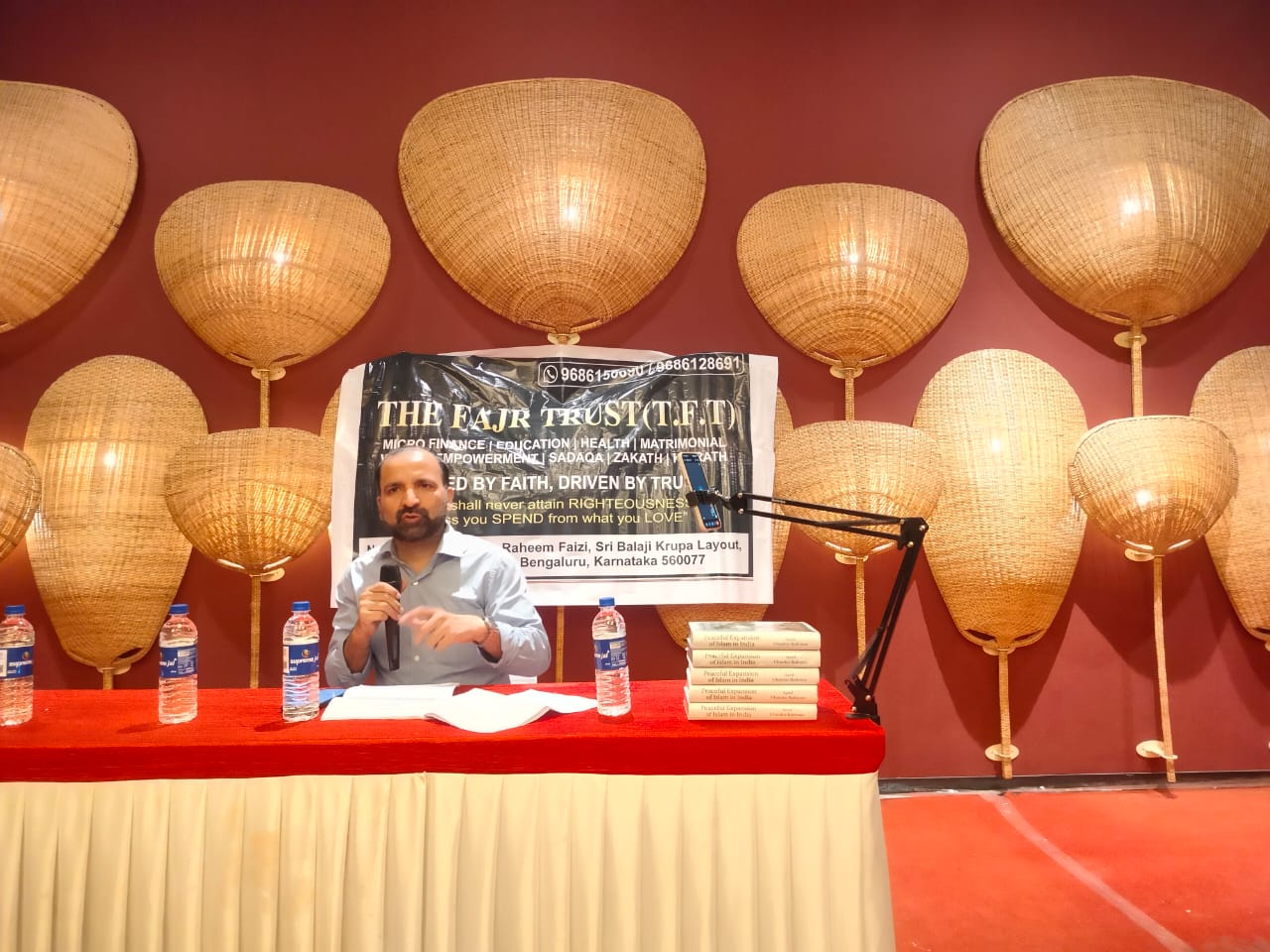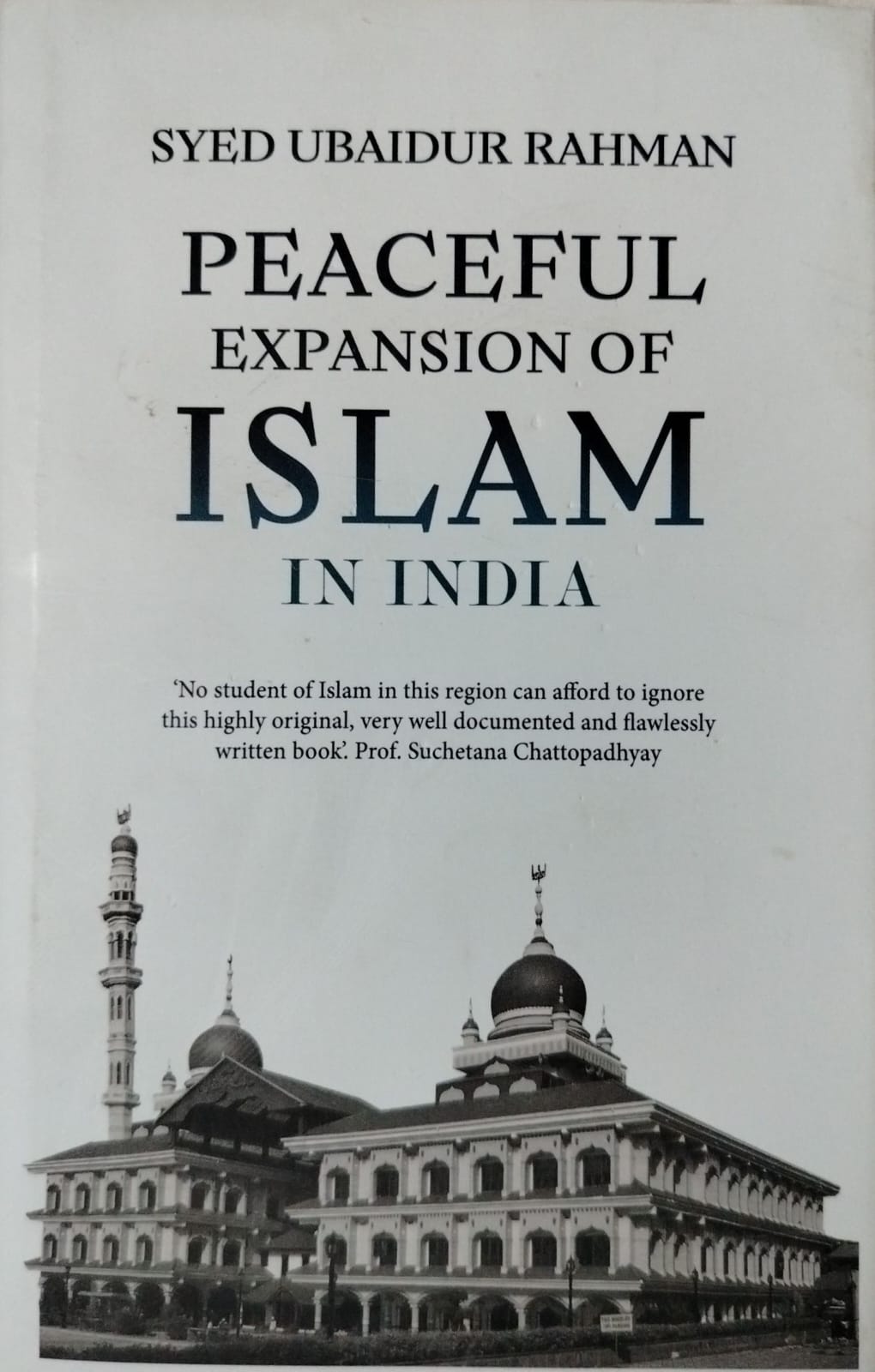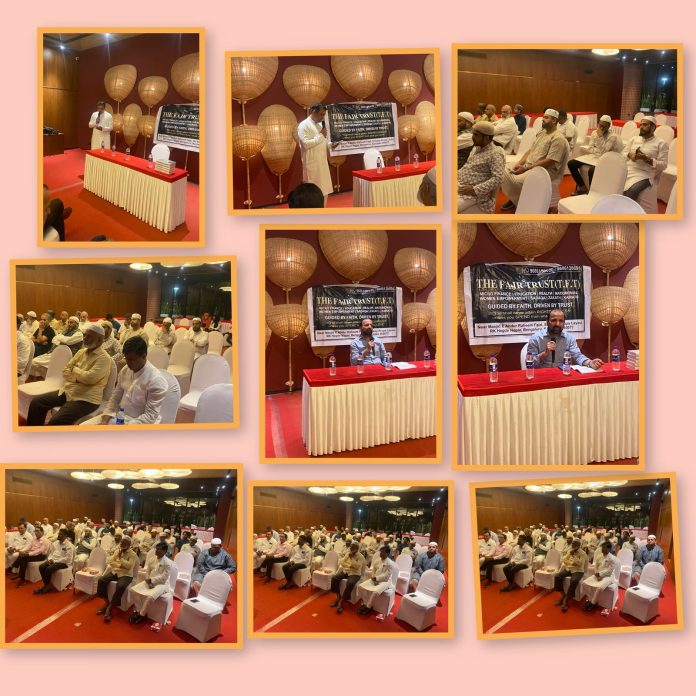– Naushad Ansari
Bangalore — The Fajr Trust hosted an insightful lecture titled “Peaceful Arrival of Islam in India through Merchants and Sufis” on April 18 at the Piccadilly Community Hall in Thanisandra, Bangalore. The event featured renowned historian and author Syed Ubaidur Rahman, who illuminated the lesser known yet significant historical path of Islam’s peaceful spread across the Indian subcontinent.
In his welcome address, Mr. Masood from Fajr Trust emphasized the event’s significance as part of the Trust’s ongoing public awareness initiative. He also elaborated on the Trust’s mission as a non-profit, voluntary charitable organization committed to uplifting marginalized communities. Major initiatives include Interest-free Financial Assistance through Microfinance, a School Re-enrollment Program for Dropout Students, Livelihood Support via Sewing Machine Distribution, and a Marriage Assistance Program for Underprivileged Girls.
Delivering the keynote, Syed Ubaidur Rahman offered a well-researched historical narrative that counters the commonly held view that Islam spread in India primarily through conquest. Instead, he highlighted the crucial roles played by Arab merchants and Sufi saints in peacefully propagating Islamic teachings across India.


Rahman presented compelling historical evidence showing that Islam reached Indian shores during the lifetime of Prophet Muhammad ﷺ, primarily through Arab traders who maintained robust trade ties with coastal regions like Malabar, Gujarat, and Tamil Nadu—long before the emergence of the Delhi Sultanate.
He pointed out that Hindu rulers, in several instances, welcomed Arab migrants and even integrated their descendants into local administrative structures, indicating a time of mutual respect and religious coexistence. One notable example cited was the conversion of King Cheraman Perumal of Kerala, regarded as one of the earliest recorded instances of Islam’s presence in India.
The lecture also explored the profound impact of Sufi missionaries, especially those from the Chishtiyya and Suhrawardiyya orders. Rahman praised eminent Sufi figures such as Baba Farid Ganj-i-Shakar and Bahauddin Zakariya for spreading messages of brotherhood, equality, and spiritual unity—messages that deeply resonated with India’s marginalized and oppressed communities.
To support his arguments, Rahman referenced scholarly works, including T.W. Arnold’s seminal book The Preaching of Islam, which emphasizes the peaceful and non-coercive nature of Islam’s spread in the Indian context.
During the event, Mr. Rahman also introduced his latest book, Peaceful Expansion of Islam in India, published by Global Media Publications, New Delhi (gmpublication@gmail.com). The book critically addresses and dispels prevalent myths regarding Islam’s spread by force in India. It has received praise from distinguished scholars like Prof. Sreemati Mukherjee (Presidency University, Kolkata), Prof. Ishtiaq Ahmed (Stockholm University), and Dr. Suchetana Chattopadhyay (Jadavpur University) for its rigorous research and balanced perspective on India’s religious history.
The event concluded with a heartfelt vote of thanks by Mr. Azmatullah and saw a large, engaged audience—reflecting the community’s growing interest in historical clarity and interfaith understanding.




